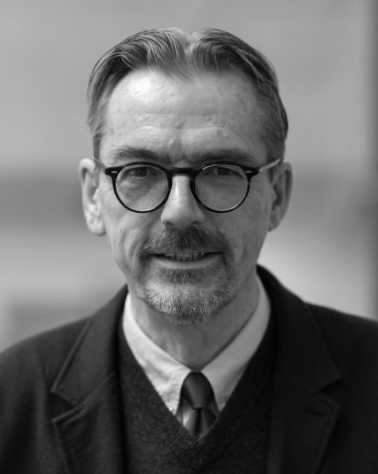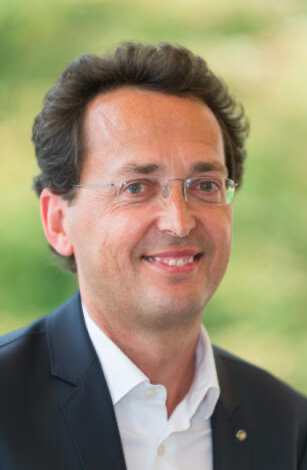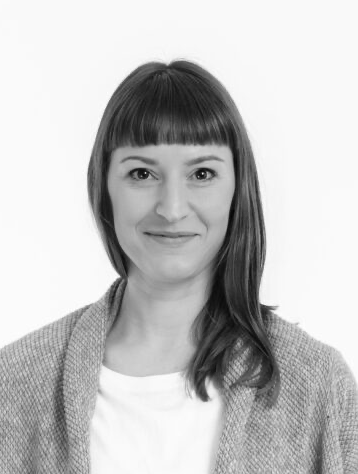“Redesign the future” is the title of the Designmonat Graz online symposium that is held by FH JOANNEUM and Creative Industries Styria in cooperation with the Green Tech Cluster. In three panels, international speakers present solutions and best practice examples for the major project of the future – its’ very own rescue. Design will take a significant role in it.
Technically, the future had already been planned. We knew the problems as well as their solutions. The implementation was next. And then everything changed in an instant. “Today is tomorrow’s yesterday” as we like to say. Back to Square One then. It’s all about rethinking and redesigning the future, today more than ever. And here we have the online symposium’s topic which approaches the future in different ways. This also calls for a philosophical and spiritual base/foundation, as described in Stuart Walker’s latest book “Design And Spirituality”. He will open the symposium with a keynote, followed by 3 panels dealing with the following topics: the future of design education, the complex topic of climate in public space and design that puts people center stage even more.

DAY 1
MAY 10, 2021
KEYNOTE: Stuart Walker
www.stuartwalker.org.uk
Professor Stuart Walker is Chair of Design for Sustainability at Lancaster University, UK where he co-founded the ImaginationLancaster Design Research Lab. He is also Visiting Professor of Sustainable Design at Kingston University, London and Emeritus Professor, University of Calgary, Canada. His research explores environmental, social and spiritual aspects of sustainability. His conceptual design work has been exhibited internationally and his numerous books include Sustainable by Design; Design for Life and Design Realities.

Stuart Walker
© magination Lancaster
Abstract
D e s i g n a f t e r a p a n d e m i c
The magnitude of COVID-19’s impact means that the need for action on a global level offers unique opportunities to reimagine societies, with far greater emphasis on environmental care and social justice so as to ensure a more positive and hopeful future for all. However, we must be careful not to simply frame the path to recovery in the same language and with the same thinking that has brought us to our current state of precariousness. A crucial part of this will be to reject the progress-entrenched thinking that has been causing so much harm for so long. This talk explores how design can contribute to this recovery. It means rejecting forms of design that yield innovation for its own sake and endless superficial novelty. Instead, it requires new forms of context-appropriate design whose outputs are not only environmentally responsible but also manifestations of ethical behaviour and meaningful contributions to human culture.
Panel 1: THE FUTURE OF DESIGN EDUCATION
hosted by FH JOANNEUM, Karl Stocker
Moderation: Karl Stocker
Design has accompanied the development of humankind from the beginning and especially in the last 150 years was actively involved in the development of modern industrial society. This results in a great/high social responsibility for the future which reflects in the curricula of traditional universities as well as universities of applied sciences. “In design education worldwide, design is being described as an improvement of the status quo as well as an innovation” says Karl Stocker, symposium curator and Head of Department for Design and Communication at FH JOANNEUM. A contradiction to the common perception of design that merely aims for aesthetic styling. It is rather the question of a wholistic perspective which also takes ethical aspects into account. Therefore, a modern design education is also an investment into shaping the future. In their lectures, Kerstin Scheuch of CENTRO University in Mexico City, Lorenzo Imbesi of Sapienza University Rome and Luisa Bocchietto of Citta del Arte in Biella will speak on these topics.
F o r a d e t a i l e d v i e w o f t h e p r o g r a m o f d a y 1 p l e a s e c l i c k
H E R E.
MODERATION: Karl Stocker
www.fh-joanneum.at
Karl Stocker is a historian and the head of the Institute of Design & Communication at the FH JOANNEUM – University of Applied Sciences in Graz, Austria. In 1999 he founded the exhibition design agency BISDATO, which produces concepts, content and spatial design for cultural-historical exhibitions and museums. His professional and academic interests include design & theory, design & society, exhibition design and socio design. He has presented the results of his research at several conferences, symposia and universities around the world. Karl Stocker is the author and publisher of numerous publications; his most recent project was Socio-Design. Relevant Projects – Designed for Society (Birkhäuser 2017) and Designing Sustainable Cities(DeGruyter 2020).

Karl Stocker
© Silke Traunfellner
DAY 2
MAY 11, 2021
Panel 2: URBAN CHANGING CLIMATE
hosted by Green Tech Cluster
Moderation: Bernhard Puttinger
The second panel deals with climate with a focus on particular challenges in urban space. Nowadays already 80 percent of the world’s population work in cities and large agglomerations, particularly in Asia and Latin America. It has a serious impact on the cities which face a threatening climatic collapse if drastic countermeasures aren’t taken. This calls for ideas, political and urban development willingness as well as appropriate infrastructure that enables the production, accumulation and consumption of energy on a local scale. And: “It needs precisely thought out solutions, so people can drive forward climate transformation in an active and financially effective way” says Bernhard Puttinger, CEO of the Green Tech Cluster who is the symposium’s cooperation partner. The key question in this context is: how can technology go hand in hand with humans? Answers are provided by Karlheinz Boiger of Breathe Earth Collective (see also page 14 in this magazine), architect and city planner Aglaée Degros of Technical University Graz.
MODERATION: Bernhard Puttinger
www.greentech.at
Bernhard Puttinger has 25 years of experience in the field of green innovation in various positions in research and business. He is a trained engineer in energy and building technologies and as well as Executive MBA. Since 2007 he is the general manager of the Green Tech Cluster Styria and initiates innovation projects with 200 companies in the field of green energy, green building and green resources. The region around Graz/Austria is known as the Green Tech Valley, where companies with an average annual growth rate of 10 % grow faster than the world markets. The Green Tech Cluster leads as global No. 1 the rankings of cleantech clusters by US venture networks and the ranking on “Cluster Management Excellence” by ESCA.

Bernhard Puttinger
© Green Tech Cluster
Panel 3: Designing for People
hosted by FH JOANNEUM
Moderation: Sigrid Bürstmayer
With all the various tasks of design, one thing remains the same: design is made for human beings therefore human beings are design’s main focus. The symposium’s third panel shows that not everything is always equally suitable and useful at the same time. “Design always depends on the cultural, geographic and socio-economical background it was created in” says Sigrid Bürstmayr, designer and tutor at Department for Design and Communication at FH JOANNEUM. Equally diverse are this panel‘s speakers. Mariana González de la Rosa of Universidad Puebla in Mexico talks about how social and solidarity-based economies in the design area can be pushed forward, particularly against the background of partly difficult economic conditions. Further contributions come from Angus Campbell of Elam School of Fine Arts at the University of Auckland/New Zealand as well as designer and design intermediary Emanuel Barbosa of Design College ESAD in Porto.
F o r a d e t a i l e d v i e w o f t h e p r o g r a m o f d a y 2 p l e a s e c l i c k
H E R E .
MODERATION: Sigrid Bürstmayer
www.fh-joanneum.at
Sigrid Bürstmayr is exhibition designer by study, design activist from the heart. She works at FH JOANNEUM – University of Applied Sciences, Graz. She presented her research results on conferences, recently in Mexico City, Istanbul and at a TEDx Talk. Meetings with people around the world keeps her quite optimistic. Sigrid believes that design is able to shape whole environments and to change the society for a better world. She also ist co-editor of the book Designing Sustainable Cities.

Sigrid Bürstmayer
© Ron Sandmayr
FURTHER INFORMATION:
click here